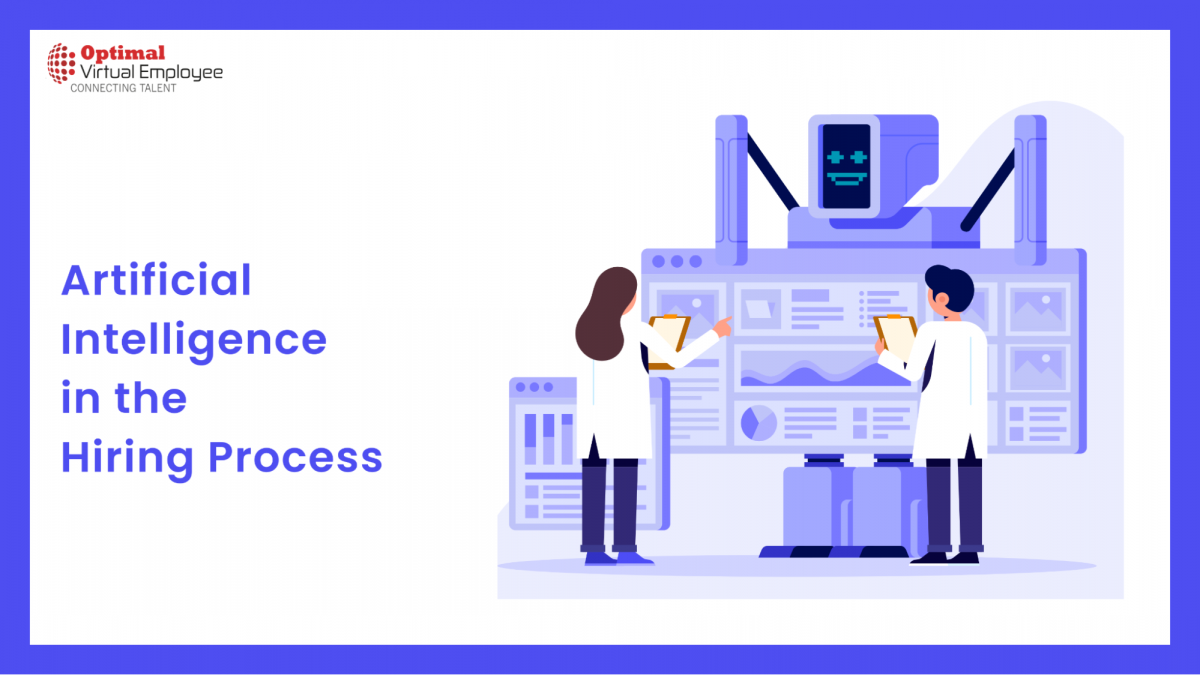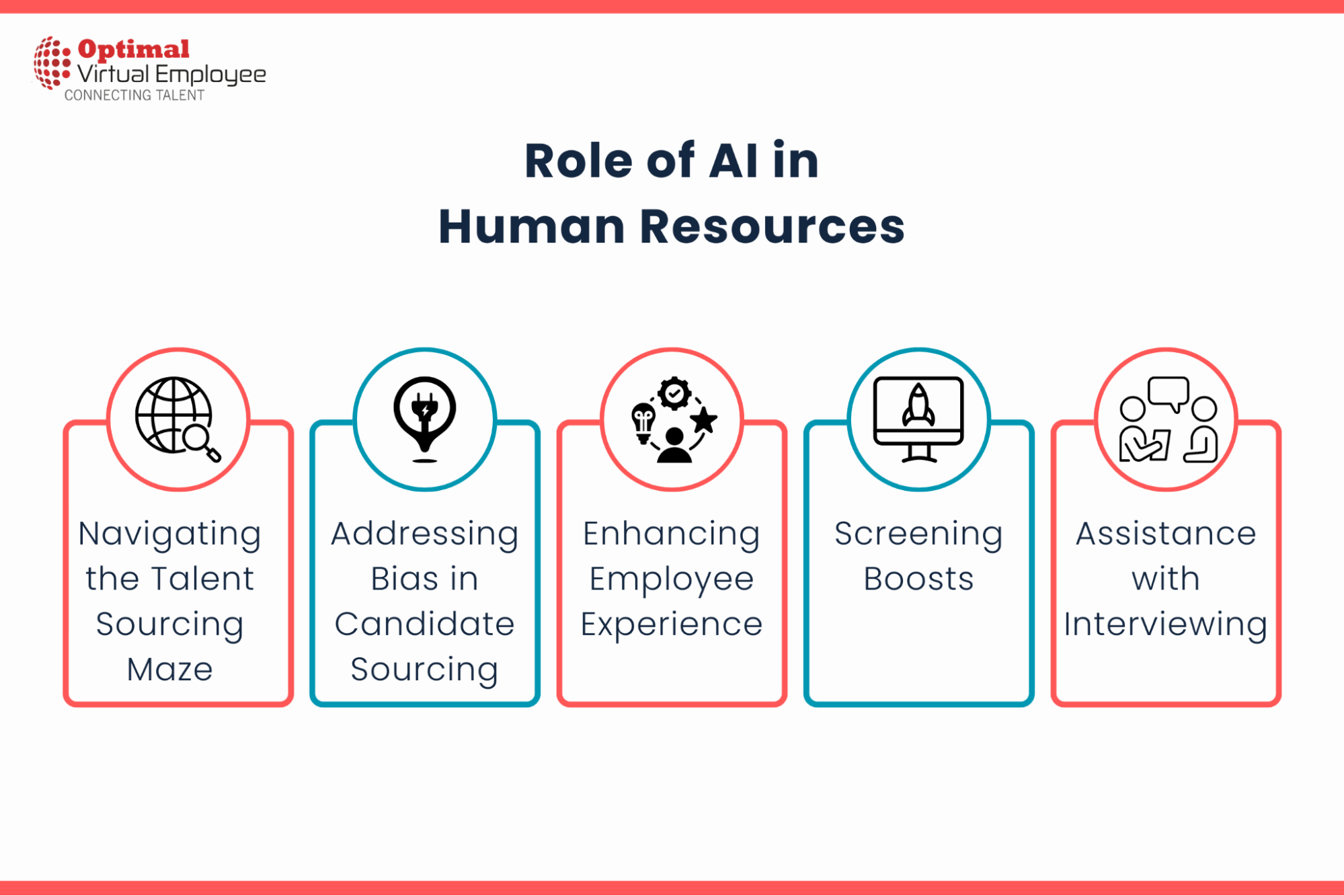In today’s competitive landscape, attracting and recruiting top-tier talent is a critical priority for companies looking to succeed globally. The advent of the digital age has opened up a multitude of channels where job postings can be shared, resulting in each vacancy attracting an overwhelming number of applications. For HR managers, the burden of sifting through these applications to find suitable candidates is enormous. In fact, about 52% of recruitment and talent acquisition specialists report that the most challenging aspect of the hiring process is screening candidates from an extensive and varied pool of applicants.
The advent of artificial intelligence (AI) in the domain of recruitment and HR management promises to be a game-changer in overcoming these challenges. By automating the initial screening process, AI allows recruiters to efficiently sort through the deluge of applications, thereby saving significant time and resources. Automated screening eliminates mundane and repetitive tasks and reduces human error, thereby enhancing the overall efficacy of the hiring process. This allows recruiters to focus on more strategic aspects of talent acquisition, such as candidate interviews and onboarding procedures.
In summary, AI technologies are offering unprecedented opportunities to optimize recruitment processes. By automating tasks such as initial screening, HR professionals can free themselves from repetitive responsibilities and channel their efforts into securing the best talent available. As the competition for top-tier candidates continues to intensify, companies that successfully incorporate AI into their hiring workflows will have a marked advantage in attracting the human capital essential for success in the global marketplace.
AI for recruitment: Opportunities and challenges
Integrating artificial intelligence (AI) into recruitment processes has emerged as a transformative strategy for HR management. Utilizing machine learning algorithms, AI-enabled tools can efficiently sift through candidate profiles to shortlist the most suitable applicants, automating manual operations and streamlining the entire recruitment workflow. Moreover, these advanced systems can generate valuable insights from the existing talent pool, construct unbiased screening tests, and recognize the attributes of candidates who have proven to be long-term assets to the company. The incorporation of AI in recruitment processes offers a multitude of advantages, such as:
– Freeing up recruiters to concentrate on high-value tasks like interviewing top candidates.
– Enhancing the quality of hires through standardized job matching algorithms.
– Improving engagement and communication throughout the recruitment process.
– Mitigating biases in hiring decisions.
– Expanding access to a broader and more diverse talent pool.
Despite the numerous advantages, it’s important to acknowledge that AI-powered recruitment is a rapidly evolving field with its own set of challenges. Initial implementation may involve substantial costs, and the effectiveness of AI tools often relies on extensive data for training and ongoing optimization. Additionally, there’s a risk that machine learning models could inadvertently perpetuate existing biases if not properly configured. Other concerns include the potential loss of the “human touch” in the recruitment process and a degree of skepticism or hesitancy among stakeholders regarding the adoption of new technology.
How Is AI Changing Human Resources?
Navigating the Talent Sourcing Maze
Recent research indicates that nearly half of all companies face challenges in identifying and attracting the right candidates for their vacant positions. AI-powered tools can effectively scan through online resumes and social media profiles, pinpointing candidates who best align with specific job requirements. Furthermore, these AI systems have the capability to send customized messages to potential hires on a large scale, a task that would be daunting for human recruiters to manage single-handedly.
Addressing Bias in Candidate Sourcing
AI technology is increasingly being fine-tuned to counteract human biases that can surface during the sourcing and screening phases. This involves training the machine learning algorithms on data that is gender-neutral and instructing the program to disregard any identifying information that could potentially lead to biased outcomes. As a result, organizations employing such AI methods are likely to end up with a candidate pool that is significantly more diverse than one sourced solely by the human resources team.
Enhancing Employee Experience
Once your AI system identifies and reaches out to potential candidates, it can swiftly and effectively guide them through the recruitment funnel, ensuring a seamless candidate experience. Chatbots for recruiting can instantly respond to applicant queries, offer timely feedback, and recommend subsequent actions. These automated assistants can also share links to relevant job openings, clarify operational hours and company locations, and even arrange interviews.
A positive experience throughout this phase is crucial, as evidenced by a CareerBuilder study: 58% of applicants will form a negative view of a company if they don’t receive any response to their job application. Conversely, 67% are likely to hold a favorable opinion of the company if they are kept regularly updated post-application. However, enhancing the candidate experience isn’t solely about communication; numerous AI solutions can also improve your website’s visuals and social media presence, making your recruitment marketing efforts more impactful. Rather than leaving candidates with a sense of “dead air,” a chatbot can step in to maintain engagement and advance the hiring process.
Screening Boosts
AI-enhanced conversational utilities can notably elevate the candidate screening process. Constantly evolving, these tools are particularly useful for revisiting past applicants. They can store key data on all candidates, which streamlines future outreach efforts. Businesses employing AI in screening have slashed their per-candidate evaluation costs by 75%.
Leveraging technology for candidate assessment also offers advantages for the applicants themselves. When CVS Health started using its Virtual Job Tryout assessment tool, it aimed to expedite the shortlisting of candidates. Considering that the company reviews more than a million applications annually, streamlining the hiring process is crucial. Artificial intelligence plays a vital role in achieving this efficiency.
CVS’s platform provides job simulation features, allowing candidates to virtually engage with tasks they might perform in a potential role. Based on their performance, they could be invited to advance to the subsequent phase of the recruitment process. Alternatively, the experience might reveal to both the candidate and the company that the role is not a good fit, saving time for both parties. CVS Health reported that this tool instantly screened out half a million applicants, amounting to a time-saving equivalent of 40 years for hiring managers. Additionally, the tool has led to measurable gains in performance metrics, new hire retention, training efficiency, and operational results.
Assistance with Interviewing
AI in human resources offers a streamlined approach for not just reaching potential candidates, but also for screening, ranking, and shortlisting their resumes based on attributes most pertinent to your organization. Once you’ve curated a list of prospective interviewees, the chatbot can handle the scheduling tasks.
Advanced AI solutions can also facilitate automated interviews at later stages before inviting candidates for in-person meetings. Through video interviews with predefined questions, AI algorithms can analyze a candidate’s facial expressions, vocal tone, body language, and word usage.
Employing this technology increases the likelihood of hiring individuals who align with your company culture. Major corporations like Google, Facebook, and Apple have utilized these AI capabilities for years to enhance their recruitment processes. Nowadays, a growing number of companies—including Capital One, Allstate, ThredUp, Hilton, and AT&T—are also adopting this innovative approach.
Onboarding
AI is significantly enhancing the onboarding experience by taking over repetitive and mundane tasks. For example, it automates processes like background verifications, compiling benefits documents, and crafting offer letter templates. Moreover, AI in the recruitment pipeline can sort, print, and distribute all required onboarding paperwork.
The automation benefits extend to training materials, traditionally a labor-intensive task when managed manually by HR. AI-driven platforms ensure that new hires receive essential documents, including those outlining company policies and providing login details. These systems can also monitor when materials have been reviewed, solicit e-signatures, and even set up meetings to delve deeper into the content as needed.
This entire operation is available round-the-clock and is compatible with multiple devices, granting employees the freedom to initiate training or seek clarifications at any time. This 24/7 accessibility also liberates the HR team to concentrate on non-automatable tasks and those that require attention beyond regular working hours.
Why use AI in the Hiring Process?
From candidate sourcing and evaluation to interviews and virtual onboarding, AI’s role in recruitment is undeniably revolutionizing the capabilities of HR departments. A 2017 Deloitte report indicated that 38% of survey participants predicted that AI would see widespread implementation in their companies within a three-to-five-year span. By 2018, this figure had risen to 42%, and it continues to ascend.
A significant 72% of executives anticipate that AI will confer substantial business benefits in the near future. Concurrently, a LinkedIn study revealed that 76% of hiring managers view AI as having at least some importance going forward. Eric Sydell, EVP of Innovation at Modern Hire, encapsulated this sentiment succinctly: “AI serves as an ideal mechanism for recruiting top-tier talent who will thrive within your organization. Leveraging vast amounts of data, it outperforms human judgment in predicting outcomes. AI not only streamlines HR operations and fosters positive candidate relationships but also offers applicants valuable insights into whether the role aligns with their career aspirations.
Conclusion
The integration of AI into HR and various other business sectors is steadily accelerating, making it imperative for communications professionals to stay abreast of this evolving wave of technology. If you’re an aspiring communications leader currently pursuing an online degree in communication, gaining a deep understanding of AI’s impact on your chosen field is crucial for your future success.










